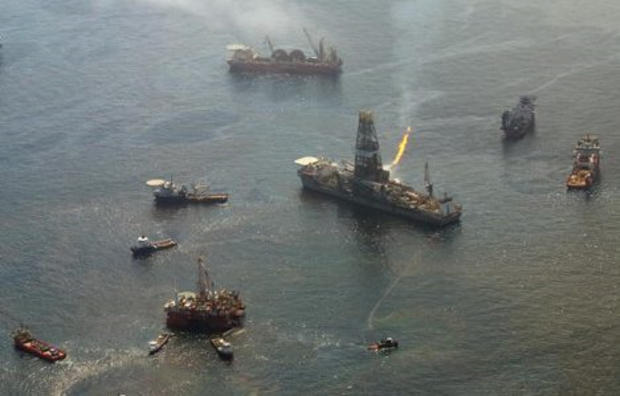5 Ways BP's Oil Spill Will Cost You (Slide 3 of 5)
|
|
You Might Pay More for Gas
|
|
Experts disagree on the impact of the spill at the pump. Some say that U.S. consumers will pay more for gas in both the short and long term, as a result of diminished supply now and increased restrictions on offshore drilling in the future. The Gulf region, after all, supplies about 20 percent of U.S. oil production. Others, however, say that OPEC could easily make up for any production shortfall in the gulf — an unfortunate outcome, but not a price mover. The production lost to the drilling moratorium amounts to less than one percent of global production, and oil prices are based on global supply. Bill Powers, the editor of Powers Energy Investor, an energy newsletter based in Chicago, says the moratorium on deepwater drilling in the Gulf region could increase gas prices by 25 to 50 cents a gallon starting as early as the fall. "The Gulf has been a focus for us in exploration and advances in deepwater technology," says Powers. "This slows us down greatly." And if new regulations and offshore drilling restrictions continue, Powers believes the oil spill will contribute to higher gas prices over the next two to five years. "$5.00 a gallon is not out of the question," he says. On the other hand, Cutler Cleveland, director of the Boston University Center for Energy and Environmental Studies, says the affected Gulf rigs don't supply a meaningful share of world production. "As important as the [Gulf] is to U.S. oil production and to Gulf state economies, it is a pittance in the world market," he wrote recently.
|
|
|
More on MoneyWatch:
